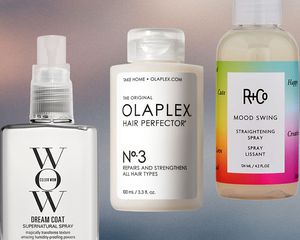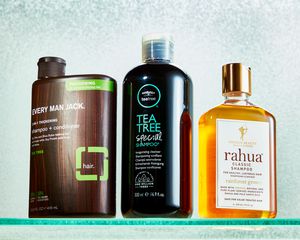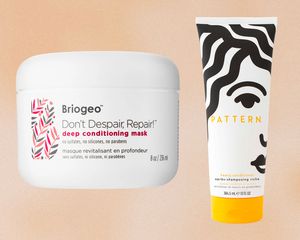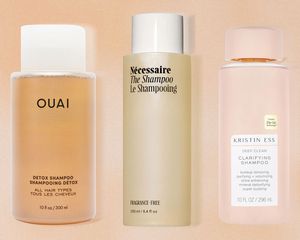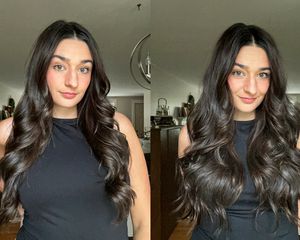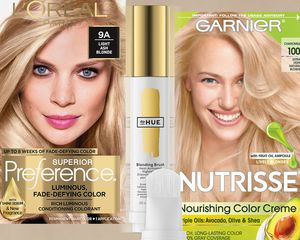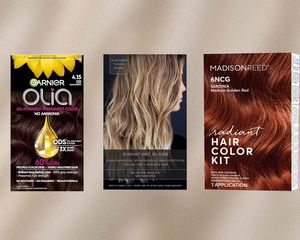:max_bytes(150000):strip_icc()/GettyImages-1215415613-762405d77c6343d5ae15bf9ba543d9c2.jpg)
Anastasiia Krivenok/Getty
For centuries, many traditional medicinal systems, including Chinese herbal medicine, Tibetan medicine, and Ayurveda have used the amla plant to treat various ailments. The most valuable part of the plant—its fruit—has potent antioxidants that studies have shown to possess anticancer, anti-inflammatory, and cardio-protective qualities. From this fruit, practitioners derive a valuable resource for improving hair health: amla oil. To help us understand the potential effects of amla oil on hair, we turned to the experts. Keep reading to learn more.
Meet the Expert
- Daboju Ogboru is a certified trichologist and holistic practitioner at NHCG Trichology.
- Ava Shamban, MD, is a board-certified dermatologist in Santa Monica and Beverly Hills.
What Is Amla Oil?
Amla oil is derived from the fruit of the amla plant, commonly referred to as "Indian gooseberry" or gooseberry. Oil can be obtained from the fruit itself or the dried fruit can be made into a powder which can then be incorporated into hair and beauty products.
Amla Oil for Hair
Type of ingredient: Antioxidant, anti-inflammatory, and hydrator
Potential benefits: Soothes scalp inflammation, regulates oil production, hydrates, and protects the hair shaft.
Who should use it: In general, anyone with dry or damaged hair will benefit from using this oil. Especially those who have an oily scalp, but still have dry, brittle hair.
How often can you use it: Amla oil can be applied to the hair and scalp up to twice weekly. Before incorporating it into weekly use, a small patch test should be conducted to test for sensitivity.
Works well with: Amla used with other Indian herbs like turmeric, bhringraj, and saffron makes an excellent scalp treatment.
Don't use with: There are no known ingredients that negatively interfere with amla oil topically. A doctor should be consulted before taking oral amla supplements.
Amla oil has maintained its popularity in Eastern medicine for generations due to its powers as a restorative digestive agent, as well as a trusted hair tonic. Studies also show that topical and oral amla oil can treat hair loss in women by increasing the anagen (growth) phase. Ultimately, while it has been credited with restoring growth and health to hair and even preventing graying, much research still needs to be done to determine the validity of these claims.
The Benefits of Amla Oil for Hair
Amla oil is rich in Vitamin C, Vitamin E, and antioxidants, all of which might contribute to cellular regeneration and promote healthy circulation to the blood vessels in the scalp. These properties may help to facilitate hair and skin growth and boost the overall health of the scalp. Board-certified dermatologist Ava Shamban emphasizes that more research is needed to definitively prove a correlation between amla oil and hair growth, as "any indication that application is an actual natural hair growth remedy in terms of activating follicles or inducing the metabolic functions of the anagen phase of growth, seems to be underwhelming."
Amla oil also contains anti-inflammatory and antibacterial qualities. Amla may reduce inflammation of the scalp and, as a result, curb oil production, with certified trichologist Daboju Ogboru noting that it "helps with sebum regulation by soaking in all the excess oil present on scalp and conditioning [the scalp]." The antibacterial powers of amla oil may help to prevent dandruff and itching of the scalp.
- Moisturizer for dry hair: The juice and oil from the amla plant are extremely hydrating. Ogboru explains that Amla is highly moisturizing, which can help to nourish dry, brittle strands.
- Antiseptic dandruff prevention: The antibacterial nature of amla oil may help to prevent the formation of dandruff and treat other causes of itching on the scalp.
- Strengthens hair: Shamban notes that amla oil is rich in phytonutrients, vitamins, and minerals, which add shine and strength and support moisture. By incorporating amla oil into your hair care routine, hair may become healthier and more resilient.
- Protects the hair cuticle: Ogboru explains that "the hair cuticle is the outermost part of the hair shaft that protects it from external factors like excessive heat, dust, pollution, hard water, and hair styling choices. Amla oil as an antioxidant shields our hair from these various damaging external factors."
- Can prevent hair loss: While more research is needed to determine the efficacy of amla oil in promoting hair growth, its ability to strengthen hair may help to prevent breakage.
How to Use Amla Oil for Hair
Amla oil can be applied topically or taken in oral form. While there may be benefits to amla oil for overall health, those looking to capture its hair-boosting qualities should stick to topical applications. Shamban warns that there is a "wide range of potency in the [oral supplements] and it’s not well regulated at this time." Ogboru adds that taking amla orally is not as effective as a topical application for the cosmetic purposes of the supplement.
- Apply the oil as a treatment: Amla oil can be applied directly to the hair and scalp (after patch testing). The oil can then be left in as a conditioning treatment or washed out.
- Create a mask: Using the powdered form of amla and water or oil, make a paste and apply it evenly to the scalp. Massage the paste into the roots of your hair to ensure it reaches the skin of your scalp. Ogboru also recommends using it with other Indian herbs like turmeric, bhringraj, and saffron to make an excellent scalp treatment.
- Use as a pre-wash detangler: Apply the oil to unwashed hair before shampooing. Make sure to work through the hair and use the hydrating nature of the oil to assist with detangling. If you don't have time to let it sit in your hair, use a blow dryer to heat and activate the oil for a short period before showering and shampooing.
Possible Side Effects
Amla oil is not associated with any known side effects, though both experts note that with any holistic treatment, a small patch test should be conducted in an inconspicuous area (such as the back of the head) to ensure there are no issues with sensitivity or irritation. Amla oil can cause irritation, particularly among those with sensitive skin, so it's best to try it on a small area of the scalp or skin first.
Does Amla Oil Work for All Hair Types?
Our experts agree that amla oil would be appropriate for all hair types and textures, but would be especially helpful for those with dry, brittle hair and oily scalps. The combination of Vitamin C, Vitamin E, and antioxidants may help to hydrate and protect the hair follicle, while potentially regulating the production of sebum on the scalp.
This potent amla-infused treatment works to prevent damaged hair while boosting strength and shine for existing strands.
This no-frills, affordable product promises long, strong and soft hair. That's thanks to the ingredients, which include amla oil, almonds, and henna. Meant to be used as a mask or treatment, the oil can be massaged into the scalp and left for several hours at a time.
Chaga mushrooms and jojoba combine with amla oil in this reparative product, which is great to apply on wet or damp hair. Just be sure to concentrate the product on the ends so it can repair without adding weight or greasiness to the roots.
On the hunt for a good hair oil? This lightweight, amla-infused blend fortifies dry, processed hair and seals the cuticle to minimize frizz and protect from heat damage.

